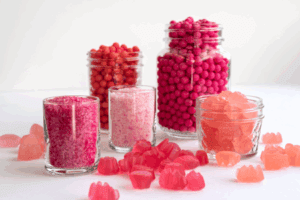Enormous islands of plastic float in our oceans, while microscopic particles of it permeate our bodies. The durability, malleability, and low cost of plastics have made them ubiquitous, from packaging and clothing to aircraft parts. However, plastics have a significant downside: they contaminate nature, are tough to recycle, and their production emits more CO2 than all air traffic combined.
In a groundbreaking development, researchers at the University of Copenhagen’s Department of Plant and Environmental Sciences have invented a new material made from modified starch that can completely decompose in nature within just two months. This innovative material, derived from natural plant materials, has potential applications in food packaging and beyond.
“We have an enormous problem with our plastic waste that recycling seems incapable of solving. Therefore, we’ve developed a new type of bioplastic that is stronger and can better withstand water than current bioplastics. At the same time, our material is one hundred percent biodegradable and can be converted into compost by microorganisms if it ends up somewhere other than a bin,” explained Professor Andreas Blennow of the Department of Plant and Environmental Sciences.
Currently, only about nine percent of plastic is recycled globally, with the remainder either incinerated or discarded into nature, where it accumulates in vast landfills. Existing bioplastics, while made from bio-derived materials, do not fully address the problem. Professor Blennow noted that these bioplastics often require special industrial composting conditions to degrade and still contribute to pollution as microplastics.
“I don’t find the name suitable because the most common types of bioplastics don’t break down that easily if tossed into nature. The process can take many years and some of it continues to pollute as microplastic. Specialized facilities are needed to break down bioplastics. And even then, a very limited part of them can be recycled, with the rest ending up as waste,” said Blennow.
The new material developed by the University of Copenhagen researchers represents a significant step forward in addressing the global plastic waste crisis, offering a sustainable alternative that could dramatically reduce environmental pollution.
Stay up-to-date on the latest industry news and exclusives in our magazine.
Never miss a story… Follow us on:
![]() International Confectionery
International Confectionery
![]() @InConfectionery
@InConfectionery
![]() @InConfectionery
@InConfectionery
Media contact
Hannah Larvin
Editor, International Confectionery
Tel: +44 (0) 1622 823 920
Email: [email protected]








